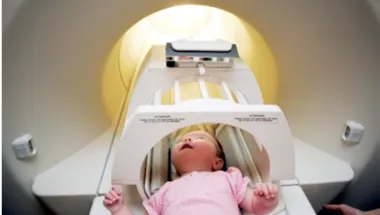
Dr Julie Sigurdardottir
Research Associate
Research interests
- Neuroscience
- Imaging sciences
- Mental Health
- Child & Family
Contact details
Biography
Julie joined KCL in 2017 where she did her PhD in the department of Perinatal Imaging and Health at St Thomas’ and is now a Research Associate affiliated with the Forensic and Neurodevelopmental Sciences at the IOPPN. Previously she completed a MSc in Neuroscience from UCL and a BA in Psychology from the University of Iceland. She also holds a postgraduate diploma in Development and Psychopathology and a certificate in Trauma Studies from the University of Reading.
Her PhD research touched on areas within the developmental origins of health and disease (DOHaD) framework. She studied the effect of maternal obesity in pregnancy on offspring brain development and other important factors in their association such as maternal depression, diet and infection and placental function. She also investigated the relationship between risks of obesity and psychopathology in young children of obese women. Utilising neonatal brain MRI data collected through the developing Human Connectome Project, she developed tractography protocols for white-matter pathways which could help explore predispositions to risk of both increased adiposity and neurodevelopmental conditions such as ASD and ADHD. She focuses particularly on the reward and autonomic nervous systems and hypothalamic function.
Now as a postdoctoral researcher she joined AIMs-2 trials to study the brain of neonates at higher likelihood of ASD and ADHD diagnosis in later life.
Research Interests
- DOHaD
- Perinatal MRI (brain and placenta)
- ASD
- Obesity exposure
- Epidemiology
Expertise and Public Engagement
Julie collaborated with a group of three artists from the Royal College of Art and Design to create a piece which was exhibited at the Science Museum in 2021. Building on her PhD work this project opened up to the public the subject of how parental health matters in brain development of their children and how researchers use MRI in pregnancy and the newborn to help us understand this better.
Research

Brain Imaging in Babies (BIBS)
The Brain Imaging in Babies Study (BIBS) aims to improve understanding of how a baby's brain develops from before birth up until 3-4 years of age.

Brain Health in Gen2020
Gen2020 researchers will map the potential impact of prenatal exposures such as Covid-19 on fetal and childhood brain development and outcomes.
Research

Brain Imaging in Babies (BIBS)
The Brain Imaging in Babies Study (BIBS) aims to improve understanding of how a baby's brain develops from before birth up until 3-4 years of age.

Brain Health in Gen2020
Gen2020 researchers will map the potential impact of prenatal exposures such as Covid-19 on fetal and childhood brain development and outcomes.
